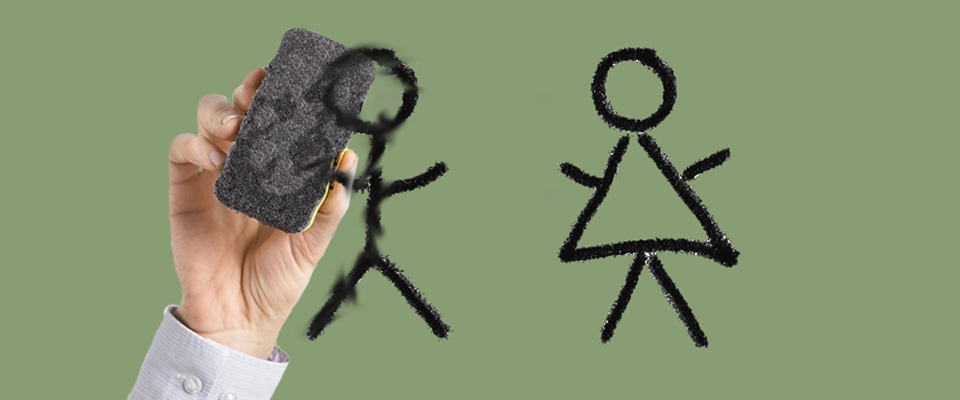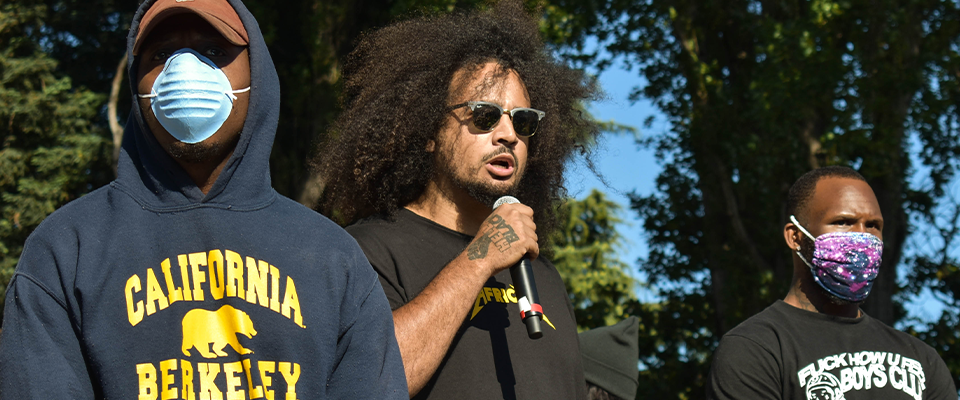In Berkeley, even construction sites are woke. Last month, the Berkeley City Council approved an ordinance to change the language in the city’s municipal code to be gender neutral. That’s not a manhole over there, it’s now a maintenance hole. And that policeman? They are a police officer. Speaking of “they;” the pronouns “they” and “them” will be used in place of gendered language, including when referencing a single individual. You think that vase was man-made? Wrong again—it was human-made. Unless of course it was machine-made. The changes, which were spearheaded by City Councilmember and UC Berkeley alum Rigel Robinson, passed with no objection—to no one’s surprise.
In a memo, Berkeley City Manager Dee Williams-Ridley explained the city’s reasoning, saying, “In recent years, broadening societal awareness of transgender and gender nonconforming identities has brought to light the importance of non-binary gender inclusivity.”
It’s hardly surprising that Berkeley is at the vanguard of local movements to make official language more inclusive. (At the state level, California is among at least 20 states that have begun ushering in gender-neutral language.) This news, from California’s most progressive enclave, was easy to lampoon. “They even changed the name of the local Hooters to ‘Torsos,’” quipped late-night host Seth Meyers.
It’s easy to poke fun at a maintenance hole: the words, in this new formulation, hit the ear strangely. The phrase sounds formal and awkwardly, conspicuously de-gendered.
Robinson’s announcement garnered hundreds of negative responses on social media, where the move was widely met with derision and hostility. Some news outlets like FOX affiliate KTVU wrote headlines like “Berkeley bans gender-specific words from city code,” implying that some words were prohibited or censored rather than simply altered.
Most critics of the ordinance focused on what they perceived to be an excessive show of “political correctness.” Others argued that the measure is far less urgent than other pressing social problems, like homelessness. It’s not even the most important issue for gender-nonconforming individuals, some said. As Diana Tourjée wrote in Vice, “it’s somewhat maddening to think of this tertiary social change being a civic priority, given the other, much more repugnant cultural crises facing cis and trans women and non-binary people.”
Defenders of the measure knew it would face criticism, but they hope that the blowback will be temporary and believe the result is worth it. Catherine Carlton, president of the LGBT caucus of the League of California Cities, told KQED, “I’m sure there’s going to be someone who’s criticizing this, ‘Oh well, it’s going too far.’ But it is picking up those unconscious things that linger and making a conscious step forward to make sure that everyone does feel included.”
When it comes to public acceptance, the City Council certainly doesn’t do itself any favors by replacing familiar everyday terms with unwieldy constructions: for example, “fraternity” and “sorority” will now become “collegiate Greek system residence.” It’s hard to imagine college students adopting that terminology anytime soon. But then again, since when must all bureaucratic language roll off the tongue? The city is merely setting a precedent for inclusive language at the level of government, not telling individual residents how to speak.

And language matters. As the late, great Toni Morrison said in her 1993 Nobel Prize speech, “Oppressive language does more than represent violence; it is violence; does more than represent the limits of knowledge; it limits knowledge.”
It’s easy to poke fun at a maintenance hole: the words, in this new formulation, hit the ear strangely. The phrase sounds formal and awkwardly, conspicuously de-gendered. But language is a living, evolving part of our experience on earth. Changes that sound ridiculous today may soon seem unremarkable. After all, it wasn’t long ago that “he” and “man” stood in for all humanity. If you were sick, you might be seen by a “lady doctor.” People used to say “woman judge,” and “woman politician,” reserving the naked title of an occupation for men alone.
Changing a couple dozen words so that we might better recognize the humanity of more people needn’t be seen as a harbinger of some brave new topsy-turvy world.
In the second half of the 20th century, feminists worked to render women visible in language by changing the hitherto generic “man” to “human” and encouraging the use of “he/she” in place of “he,” among other things. Feminists also worked to strike the gendered modifiers from occupational titles. In so doing, they showed that language is not a neutral tool of communication. If maleness and male superiority are encoded in the words we use, we are more likely to build and reinforce a world according to that belief. Anthropologists like Emily Martin showed how even scientific literature—thought to be the most rational, detached, and fact-based of all—peddled gendered narratives of reproduction. She called the traditional understanding of active sperm penetrating a passive egg a “scientific fairy tale” that informs the way we think of gender from the very beginning of life. By engaging actively with language, she and others argued, we can question the capacities we’ve come to see as “natural.”
Though some mocked and blocked these feminists, too, it didn’t take long for the changes they sought to be widely adopted. Writing in The New York Times in 1982, linguistics expert Sol Steinmetz claimed that feminist language reform had made real headway in just the previous 12 years. Feminists’ interest in language “is ultimately not linguistic but moral,” he wrote. “For them, a language that is structurally biased against one of the sexes can inflict serious psychic damage to members of that sex. This argument is as hard to prove as it is to disprove, but to many people it makes profound psychological sense.”
In 2019, we know these efforts have produced results. We speak differently, often without a second thought. A “waitress” is a “server.” The gender of a “flight attendant” is irrelevant. When you hear the word “doctor” or “engineer,” you may be less likely than you once were to imagine a man. And that may mean young girls are more likely to imagine themselves as doctors and engineers.
The explicit intent of the Berkeley ordinance is to “promote equality,” and though the results will surely be hard to quantify, there is reason to believe that it might contribute to that end. Changing a couple dozen words so that we might better recognize the humanity of more people needn’t be seen as a harbinger of some brave new topsy-turvy world. It’s an act that affords greater comfort to others. It’s free—well, in this case, $600—and it requires very little in the way of time or energy. Berkeley denizens themselves might remind us to Chill, man. Er—sorry, person.





















